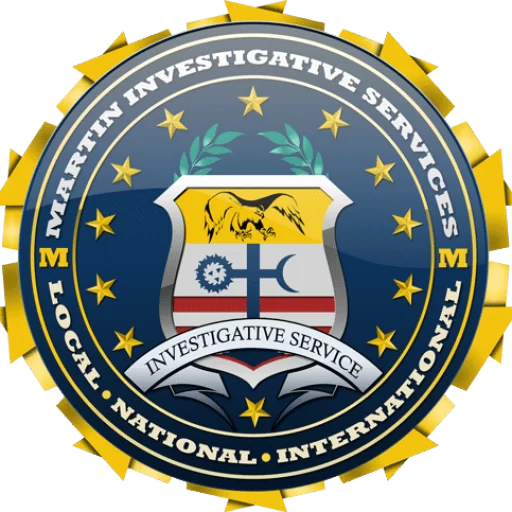
Private Background Check
Usually, private background checks are conducted on individuals by government agencies for various reasons. These may include getting hired in said agencies and during criminal investigations. Generally, the government wants to ensure candidates are loyal to the united states, trustworthy, reliable, and of good conduct.
Alternatively, individuals or private companies can conduct personal background checks. Individuals or private entities do this to reduce risks for various criminal activities like theft, abuse, and violence. Also, Employers can use information obtained to verify information provided in the resume by an individual.
The information helps the organization decide whether the person is the right fit for the job. Information obtained from the search includes credit and criminal history and an individual’s previous addresses. Note that acquired information may be inaccurate or incomplete. Also, the quality of information gathered depends on who conducts the background check.
Call (800) 577-1080


What shows up on a person’s background check?
An actual background check involves collecting and inspecting private and public records. Companies should do the reviews lawfully and in compliance with FCRA regulations. Information obtained from background checks depends on the type of background check requested. Information that shows up during background checks includes:
County, state, and federal criminal records
Checking for criminal records during a private background check provides information on whether the individual being checked has committed any crimes outside the county or state where they work and live. Investigators inspect the criminal records in the National Criminal Records Database to uncover misdemeanor or felony offenses.
They look at data provided by law enforcement and local court systems. Usually, hits appear if the individual commits a crime or charges have been pressed against them. Individuals who’ve been charged and not convicted will have the incidents listed as charges, while those convicted will have their records show up during the search as such.
Credit history
Credit reports have information on an individual’s credit history, i.e., requests from past years. You can use the report to identify financial institutions, retailers, and customers who have previously requested the individual’s credit report. You can use credit card reports to uncover potential warning signs when looking into somebody. Credit card reports can show an individual’s complete credit history, including:
- Tax liens
- Payment history
- Unpaid bills
- Credit Inquiries
- Civil judgments
- Bankruptcies
High school, university, etc., education history
You can use background checks to determine whether an individual’s educational credentials and background are legitimate. The process involves contacting colleges, vocational schools, universities, and high schools to verify the individual’s students status.
The check helps determine whether the individual attended school and the types of certifications they got from the institution. Generally, such background checks go as far back as needed (as official records may allow).
Employment history
Background checks on a person’s employment history provide information about the individual’s employment history. It involves checking references to former employers, superiors, and prospective employers as provided by the individual. However, you have to note that employment verification background checks cannot confirm self-employment.
Additionally, they cannot include an individual’s salary information or provide their entire employment history because of state restrictions. The report can only state a discrepancy between the exact figure and the reported amount. Generally, available information dates back seven years; however, it may vary depending on the source of the background check.
Driving records
Driving records are vital in various instances, including when you want to hire someone. For example, the records determine whether the person has any convictions or violations on their driving records. This information can determine the direction of an investigation or disqualify the individual from employment.
For example, some individuals can be disqualified for life if they have violations or convictions resulting from reckless driving on their CDL (Commercial Driver’s License). Making thorough checks on driving records can unearth various information like DUI, which is essential since some states don’t list the offenses under criminal status.
Do public records show up when performing background checks?
Public records appear when performing background checks and contain millions of Americans’ data, including their spending habits, marriage licenses, credit history, criminal backgrounds, etc. Companies and individuals may use this data to determine whether an individual is who they claim to be.
Such checks are easy for HR professionals or hiring managers to verify an individual’s experience and identity and maintain employee records. They provide crucial information about potential hires’ validity and ensure employers and other individuals don’t get scammed into thinking someone is not who they are.
Background checks will show all information, including the individual’s email address, home address, and phone number. Searching extensive databases like social security administration records and the department of homeland security can show whether an individual’s social security is valid, their identity and whether it’s been used before.
What ruins a background check?
Various factors can ruin a background check. Some common red flags that could disqualify applicants during background checks include the following:
Poor employment history
Having gaps in your employment history may not cause much concern during an actual background check. Others include a pattern of short-lived jobs or unemployment. These suggest that the applicant is not worth investing in, i.e., they may need to be more reliable. However, this doesn’t extend to seasonal work, internships, or training.
Inconsistencies and lying on your resume
Dishonesty can cause enormous problems for background checks and could cost job applicants their opportunities. For instance, people who lie about their skills, education, or qualifications will be discovered during a background check, no matter how embellished or well-written the resume is.
A criminal history
Employers always check an applicant’s criminal history when screening applicants, and lying about it will likely make you disqualified. However, you could still get hired depending on the employer’s hiring standards or the crime’s severity, but you have to come clean about your criminal history.
The employer may overlook small incidents or minor misdemeanors that occurred a while back, but not so much with serious crimes. A criminal history can also be missing during a court trial. Doing thorough background checks can better prepare lawyers if your employer files a lawsuit.
A poor credit history
Credit can save you an opportunity, especially when applying for financial and federal jobs. Credit histories are considered liabilities since they may impact their ability to handle finances responsibly.
How do you know if someone ran a background check on you?
Often, people do background checks during house screenings, employment, and various situations. For instance, your spouse may conduct a background check on you to know whether you’ve ever been involved in any criminal conduct or by potential business partners who want to see if you are worth their time.
It’s understandable if you want to know whether someone has done a background check on you since your privacy is important. Additionally, you may feel uncomfortable suspecting that someone is checking your background without your permission or knowledge. Thus, it helps to know whether someone did a background check on you.
Most instances where entities conduct background checks require your approval. For example, your employer has to follow various guidelines set by the FCRA (Fair Credit Reporting Act). Your employer will provide disclosure asking to run a background check, and you have to consent and allow them to run it.
You’ll also be asked to consent to a background check in other situations like applying for a credit card, loan, or housing. The loan officer, manager, or credit card company must disclose their intentions to run a background check, and you’ll need to consent to the check before they can run it.
Other situations may not necessitate the party looking to run a background check to ask for your consent. For instance, potential business partners may run a background check to determine your criminal history. A potential business partner may run a check to decide whether or not you’ve been involved in severe criminal cases or have bankruptcies.
Anyone can publicly access most background data, and while some laws and regulations limit how various entities can use the records, they don’t specify how someone can access the information. Often, you won’t know who’s done a background check, and there is little you can do to counter it. However, you can still track entities performing credit background checks.
California background check laws
California background checks have various rules and regulations governing how to conduct background checks. Here are the requirements, legislation, and procedures you should be aware of.
The Fair Credit Reporting Act:
This act helps protect applicants and employers by promoting accuracy, privacy, and fairness. Entities doing this check must:
- Give applicants written notice of their intent to do a background check
- Obtain the applicant’s permission
- Get specific permission for jobs requiring a medical background check
- Provide notice if the check involves friends and neighbors as character references
- Notify the applicant if they plan to use the information to make adverse hiring decisions
Investigative Consumer Reporting Agencies Act (ICRAA)/ Consumer Credit Reporting Agencies Act (CCRAA)
Both of these agencies apply to specific employee background checks. As such, employers should comply with both laws to ensure their background checks comply with state and federal laws.
For instance, the ICRAA has specific reporting restrictions, notification requirements, and more governing background checks. The CCRAA states that investigative consumer reports and credit reports are background checks. They note that employers shall provide the report contemporaneously to the subject person and at no charge.
California Information Privacy Act (CIPA)
This act expands the FCRA’s minimum employee privacy protections. It provides strict requirements employees should follow when hiring a private investigator background check<span< a=””>. For instance, employees looking to conduct the check should ask for consent from the applicant. Those seeking a private investigator background check should provide a clear and conspicuous notice detailing the background check’s nature and scope.</span<>
CA Labor Code 432.7
This regulation protects employees from asking job applicants for information concerning sealed or dismissed convictions, post-trial or pre-trial diversion programs, and criminal charges that didn’t end in convictions. However, employers can ask for information regarding pending trials.
Employment Discrimination Based on Out-of-Work Marijuana Use Prohibited
This regulation prohibits employers from discriminating against applicants for using marijuana outside workplaces. It allows employees to test for marijuana according to state or federal laws and regulations and will be effective from January 1, 2024. Employers can only act on results showing the presence of delta-9-tetrahydrocannabinol.
Dismissal and Sealing of Certain Past Marijuana Convictions
This law seals and dismisses all convictions concerning people convicted of transporting, distributing, possessing, and cultivating up to 8g of concentrated marijuana or 28.5g of cannabis. The sealed and dismissed convictions won’t be reported on a criminal background check in California if done during employment.
Employee background check, California
Ban The Box laws apply to employers in the public sector. The regulations require employers to inquire into applicants’ criminal records after determining that they meet the position’s minimum requirements. Along with the California Fair Chance Act, the law aims to give applicants with a criminal history a fair chance and allow them to advance through the application process.
California’s Fair Chance to Compete for Jobs Act applies to federal contractors and agencies, including private companies contracting with the federal government. The law prohibits employers from including questions about an applicant’s criminal history in the application. Additionally, they can only do a background check if they offer a conditional offer of employment.
Criminal background check, California
A criminal background check in California provides information on whether an individual’s been arrested for a felony or misdemeanor. The statement can disclose information about the individual, including bad credit reports, past criminal convictions, or education history.
Background checks for applicants looking for a job go back seven years; however, there are some exceptions. Generally, employers can not obtain information regarding criminal background checks that go back more than seven years.
Conclusion
You are on the right page if you are looking for a competent private investigator firm to help you with your background check. We have a professional network of former agents, including the FBI, DEA, IRS, and Secret Service. You can call us at 1-800-577-1080 or fill out a web form to help you with various issues involving background checks.

Reasons for Hiring a Private Investigator – Martin PI
19 Reasons to Hiring a Private investigator Reasons to Hire a Private Investigator If you live in California and a metropolitan like Los Angeles, Orange County, San Francisco, San Diego, or any other county, understanding how to hire a private investigation company is...
Missing Person Search: Find Loved Ones Quickly & Easily
Missing Person Search It's vital to begin your search quickly if you notice your loved one is missing. It would help if you started by calling the police department and filing a missing persons report. Next, you must begin your search and contact the media if the...
Missing Person Private Investigator Services
Missing Person Private Investigator Services In the United States, there are almost 600,000 names added to the nation's registry of missing persons each year. Even so, you might be surprised to learn that it is only some people who disappear that wind up on the list....
Let Us help you Bring Your peace back!
Private Investigation Near Me - PI Near MeClient Testimonials

I’ve represented individuals and businesses (international and local) for close to fifty years, and I’ve called on Martin Investigative Services more times than I can count, often on a rush basis, for help throughout the world, on a number of different types of assignments. I’ve never been disappointed. I’ve always received swift, cost-effective and USEFUL information, which has wound up “saving the bacon” of our clients and making us shine in their eyes. I recommend them without any reservation.

Martin Investigative Services is truly one of the best run organizations we have worked with. Fair, efficient and professional. Tom Martin in particular exudes confidence and experience and isn’t afraid to tell it like it is. That’s something we can rely on.

Successful people know that to be the best, you model the best. I cannot recommend Martin PI any higher! In a five-minute conversation with experienced people you can save thousands by bypassing sales types. They do this by cutting directly to the heart based on years and years of passionate pursuit of best practices and adding massive value to their clients. They are an invaluable part of my team and Tom is my most valued mentor!

Martin Investigative Services has performed background checks, private investigation, surveillance and bug sweeps for our clients. They have also served difficult process in lawsuits. They have performed unquestionably and unfailingly to perfection. We will always call Martin first – and hope he hasn’t been called yet by the other side!

We have used Martin Investigative Services for three decades. Their work is exemplary; reports are perfect and their testimony is very professional, with great judge and jury appeal. We will not use anyone else for our investigations.

It has been my pleasure to work with Martin Investigative Services over the past 30 plus years on many investigations as well as other security related matters. When I need answers and I need them fast I know that a simple call will get me answers that are succinct, current and coming from a supremely knowledgeable source.
MartinPI Operates throughout the United States and foreign countries
We can have a team ready in 2 days. Are you ready?We respect your time and thank you for stopping by. Please look around and learn about our services. Should you need help today, simply press the button below.

call us today
Martin Investigations is second-to-none!Start by contacting us and a meeting will be set up. Call (800) 577-1080



